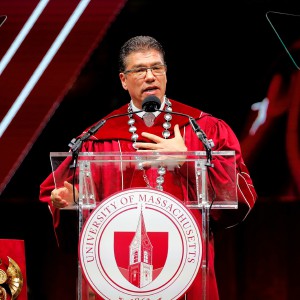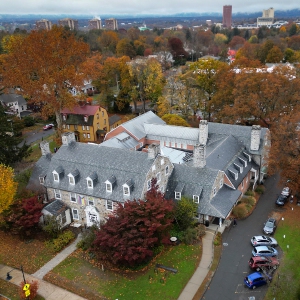Municipal aggregation OK’d for Belchertown

Belchertown Town Hall
| Published: 02-03-2024 11:00 AM |
BELCHERTOWN — State utility regulators have given a green light to municipal aggregation in Belchertown, allowing residents and businesses to act as a bulk buyer of electricity supply.
Aggregation typically helps to keep electricity rates down and can also provide a boost to renewable power sources.
The preliminary approval comes a little more than a year after the town submitted its plan to the Department of Public Utilities, and 2½ years after Town Meeting approved the initiative.
John Piekara, who chairs the Belchertown Community Energy Choice subcommittee that helped develop the plan, said Friday the process now is for the town’s consultants, Good Energy LLC, to satisfy the state’s remaining requirements.
“We expect final approval sometime in February,” Piekara said.
With final approval from Town Administrator Steve Williams and the Select Board, the town will go out to bid for an electricity supplier. The goal, Piekara said, is to find one offering a high proportion of renewable energy sources at a price comparable to or lower than National Grid’s basic rate.
Once a contract is signed, residents will be informed of the change, and will be able to opt out if they wish to.
“If you’re a National Grid customer, you’ll receive a letter saying you’re automatically enrolled,” Piekara said.
Article continues after...
Yesterday's Most Read Articles
Those who want to opt out will just return the card. People alsowill have the option of raising the percentage of renewables in their energy supply, up to 100%, he said.
The consultants also will be involved in outreach to the community.
Belchertown Community Energy Choice is a project of the town’s seven-member Energy and Sustainability Committee, also relatively new, Piekara said.
Good Energy, which has experience developing aggregation plans for other municipalities, acts as liaison between the town and the DPU. The consultants are paid through a small surcharge on utility bills.
“There’s no cost to the town” for aggregation, Piekara said.
The DPU’s 46-page order notes that the town must implement its aggregation plan within two years of final approval or approval will be revoked.
The state regulator has come under criticism for being slow to act on municipal aggregation petitions. Piekara said Sen. Jacob Oliveira, D-Ludlow, and Rep. Aaron Saunders, D-Belchertown, sent a letter last summer in support of the town’s petition, and the town added its own push for action shortly before the approval came through.
The DPU is working to streamline the approval process and held a technical session in December with stakeholders to address procedural requirements and plan elements going forward.
“Following the technical session, DPU concentrated on reviewing the pending applications to issue decisions in a timely manner,” the regulator said in a statement.
The state has approved 188 municipal aggregation plans since approval of the first plan in August 2000. Currently, there are over 1.2 million customers enrolled in a municipal aggregation program in Massachusetts, according to the DPU.
“Municipal aggregation is an important tool for communities to utilize clean energy, provide ratepayers with more flexibility, and help cities and towns pursue our collective clean energy and climate goals,” DPU Chair Jamie Van Nostrand said in a statement.

 Sharing a few notes: High schoolers coaching younger string players one on one
Sharing a few notes: High schoolers coaching younger string players one on one Reyes takes helm of UMass flagship amid pro-Palestinian protests
Reyes takes helm of UMass flagship amid pro-Palestinian protests Sole over-budget bid could doom Jones Library expansion project
Sole over-budget bid could doom Jones Library expansion project Amherst poised to hire police department veteran as new chief
Amherst poised to hire police department veteran as new chief 